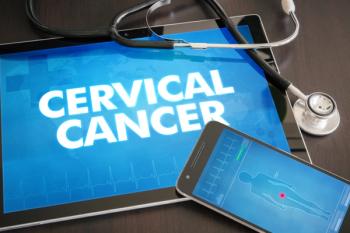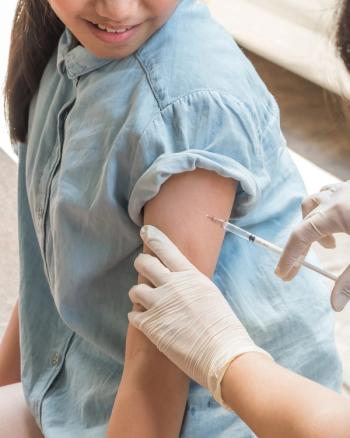
Review some of the top stories from the Contemporary OB/GYN website over the last week, and catch up on anything you may have missed.

Review some of the top stories from the Contemporary OB/GYN website over the last week, and catch up on anything you may have missed.

A recent exposed the relationship between financial strain, underutilization of health care, and comorbidities, shedding light on the heightened risks.

A comprehensive review highlighted challenges and research gaps in human papillomavirus vaccination, emphasizing the importance of targeted interventions and effective delivery strategies.

A recent study found that watching health-related videos on social media significantly increases awareness about human papillomavirus (HPV) and the HPV vaccine, with data showing geographic variations and demographic influences on viewership and awareness levels.

A recent study using the Pregnancy Risk Assessment Monitoring System highlighted lower rates of breastfeeding initiation and duration among women with disabilities, emphasizing the need for targeted interventions to improve breastfeeding outcomes.

A recent study revealed that low-dose calcium supplementation is noninferior to high-dose supplementation in preventing preeclampsia, shedding light on considerations for maternal health and pregnancy strategies worldwide.

A recent study revealed negative impacts of practicing in a state with abortion care restrictions, leading to delayed care, worry over legal repercussions, and adverse mental health outcomes.

Anna Cabeca, DO, FACOG, discusses dehydroepiandrosterone and associated misunderstandings.

Explore the research on oxytocin's role beyond labor and bonding as Anna Cabeca, DO, FACOG, triple board certified ob-gyn, sheds light on its impact on longevity, sexual health, and overall well-being at the A4M conference in Las Vegas.

A recent study revealed that physician awareness of patients' desired level of decision-making significantly enhances satisfaction, highlighting the importance of tailored approaches for women with pelvic floor disorders seeking patient-centered care.

A recent study explored the impact of interventions for cardiometabolic factors in mitigating the influence of lower education levels on various adverse pregnancy outcomes, shedding light on mediators in maternal health.

A study in Sweden found that women with a history of pelvic inflammatory disease face an elevated risk of epithelial ovarian cancer.

A recent study revealed disparities in gynecologic oncology clinical trial enrollment, impacting the outcomes of underrepresented racial and ethnic groups.

A recent study found that COVID-19 vaccination is not associated with an increase in incident postmenopausal bleeding diagnoses, providing reassurance to providers and patients concerned about bleeding caused by the vaccine.

Review some of the top stories from the Contemporary OB/GYN website over the last week, and catch up on anything you may have missed.

A recent study revealed a substantial rise in open abdominal hysterectomy following the Laparoscopic Approach to Cervical Cancer trial, impacting surgical approaches but not 30-day complications.

A recent study revealed that Black women, especially those facing extended travel distances for maternity care, are at a heightened risk of severe maternal morbidity, shedding light on needs for equitable maternal care policies in the United States.

A recent study revealed varied adoption rates of antenatal steroids for late preterm births across US regions, despite promising trial results.

A recent study unveiled how prepregnancy body mass index influences twin births, with assisted reproductive technology use as a noteworthy mediator.

In a recent panel, clinicians discussed rising cases of respiratory syncytial virus (RSV), vaccination challenges, and the urgent need for public awareness and intervention strategies in the 2023 to 2024 season.

A recent study revealed increased utilization of oocyte cryopreservation among poor ovarian responders, emphasizing the need for tailored counseling strategies.

A recent study revealed that homelessness is tied to higher risks of short pregnancy intervals, suggesting potential disparities in maternal and neonatal outcomes.

A recent study highlights how a history of infertility may signal decreased cardiovascular health in midlife, emphasizing the need for comprehensive risk assessments in female patients.

Bayer has initiated the phase 2 trial NIRVANA to evaluate elinzanetant's potential in treating sleep disturbances in menopausal women, addressing a prevalent yet unmet need in women's health.

Elinzanetant demonstrated positive safety and efficacy data in managing menopausal vasomotor symptoms, highlighting its potential as a treatment for improving women's quality of life during menopause.

A comprehensive review reveals a minimal 0.5% risk of perinatal death in pregnancies diagnosed with vasa previa prenatally, emphasizing the importance of timely diagnosis and reduced stress for expectant families.

Review some of the top stories from the Contemporary OB/GYN website over the last week, and catch up on anything you may have missed.

A recent meta-analysis reveals associations between hysterectomy combined with bilateral salpingo-oophorectomy and various health risks, urging a nuanced assessment of its benefits and drawbacks.

A recent meta-analysis reveals that digital health interventions significantly alleviate symptoms of postpartum anxiety and depression, underscoring their potential as accessible treatments for new mothers.

A decade-long study confirms significant protection against human papillomavirus remains in patients vaccinated up to age 20, reinforcing the World Health Organization's single-dose vaccination recommendation for adolescents.